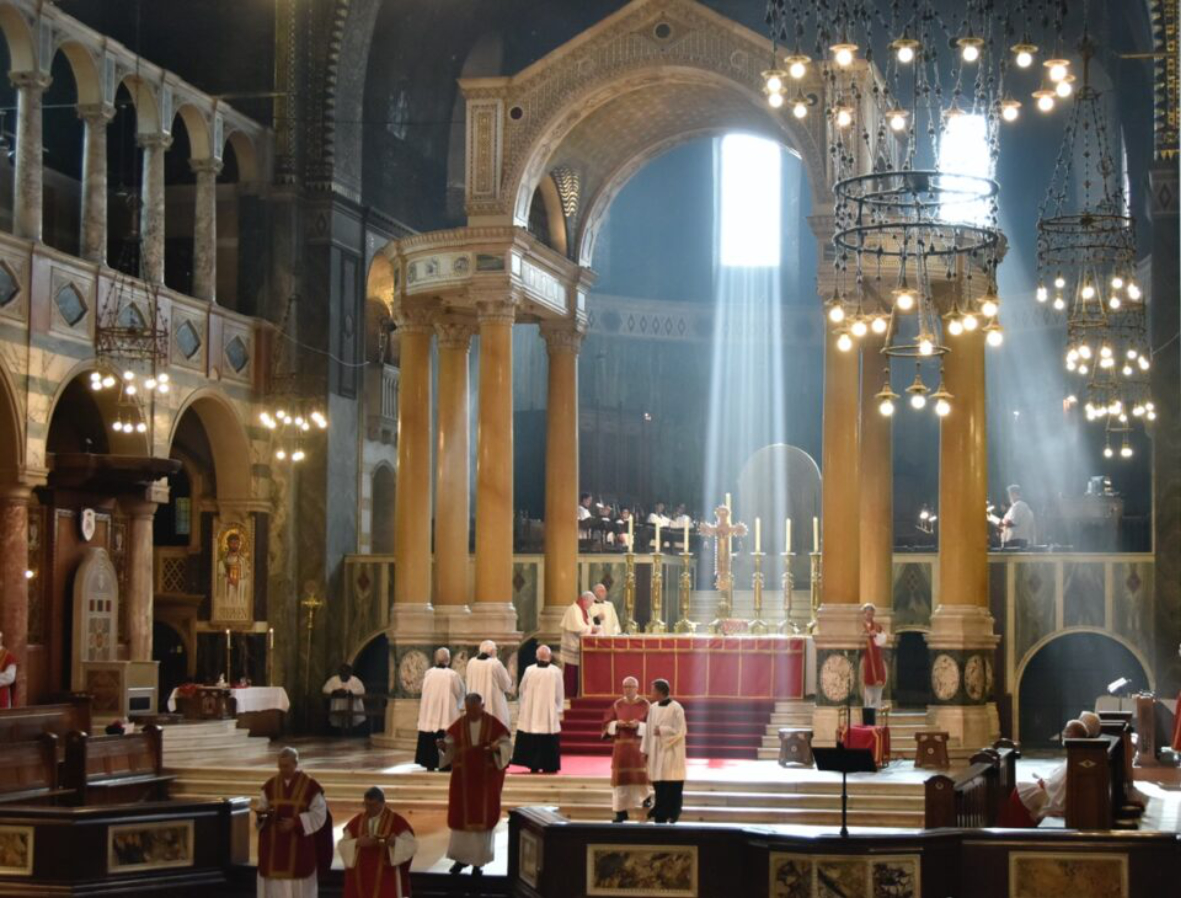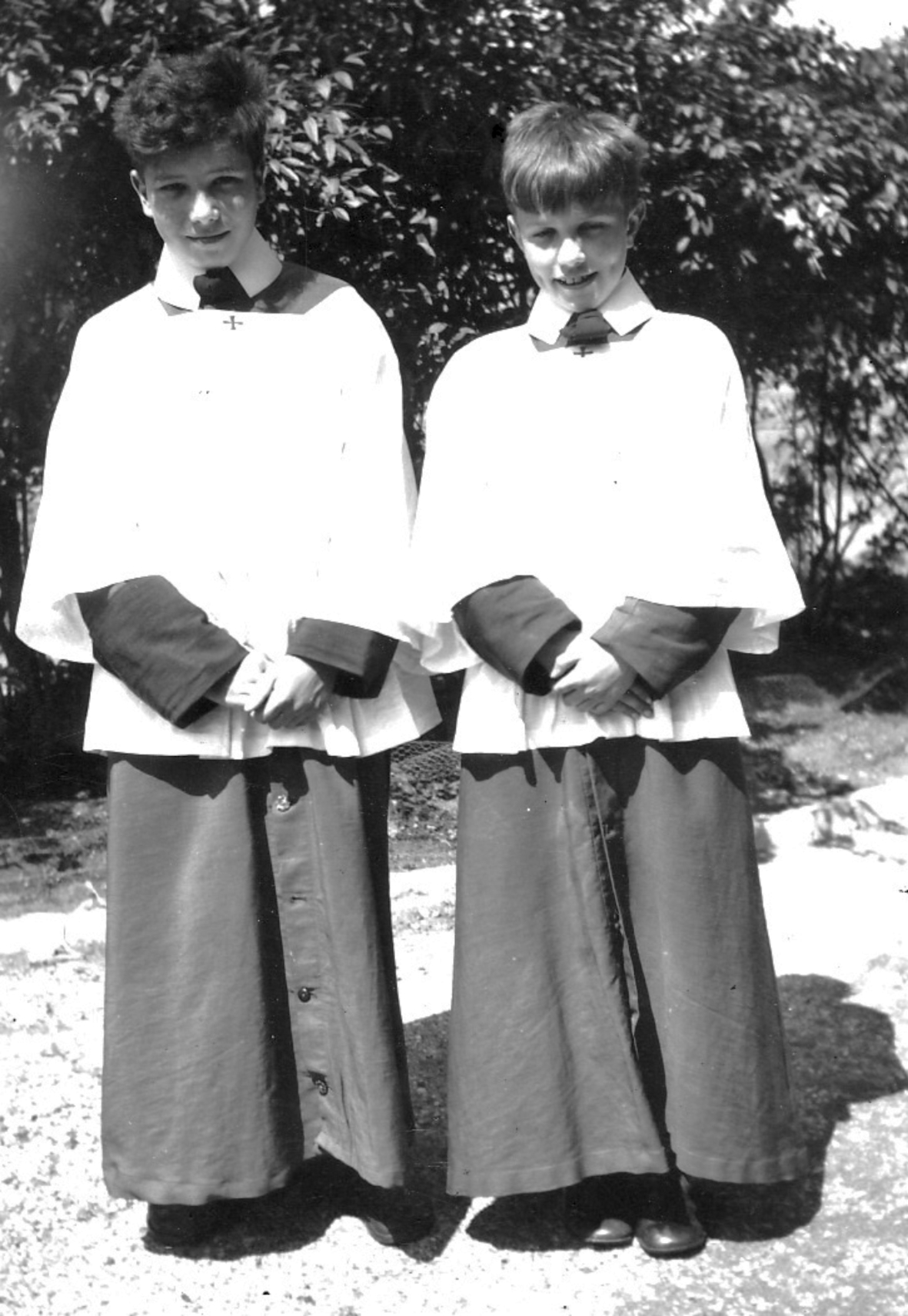Julian Berkeley on Lennox Berkeley's 'Missa Brevis'
Julian Berkeley recalls the first performance of Berkeley's 'Missa Brevis' at Westminster Cathedral in 1960 – and the recent discovery of a BBC live recording.
Looking for a new home for my complete set of The Organ journal (from the first issue, July 1921), I consulted the organist Iain Simcock who suggested that I might try the Archive of Recorded Church Music and kindly offered to approach its founder, Colin Brownlee, on my behalf. Within 24-hours, Iain wrote back to say that Colin had just discovered in a BBC archive in Cyprus a rare recording of one of the first performances of my father's Missa Brevis, recorded live at High Mass in Westminster Cathedral on 8 July 1960, four months after the work’s premiere there. Colin himself followed up with a message to say he would be happy to give The Organ journals a safe and secure home as they would complement the library section of his Archive – and to let me have a copy of the BBC recording as soon as he had converted the recording from the original 16-inch discs, each containing about ten minutes per side.

I have just received Colin’s digitised version, and, after listening to the sonorous tones of Richard Dimbleby introducing the broadcast, I was immediately transported back to that summer Friday in Westminster Cathedral, two days after my tenth birthday, when my brother Michael and I, as choristers, had the excitement of knowing that the occasion was being recorded by the BBC Transcription Services, so that the Westminster Cathedral Choir’s interpretation of the new Mass, specially composed for us, would be captured for posterity.
The Transcription Services were set up in the mid-1930s to record certain programmes for sale to overseas broadcasters who were licensed to re-broadcast them for a set period of two or three years. Since BBC Radio is known to have destroyed most of its own broadcast recordings, the Transcription Services’ recordings have turned out to be a vital means of tracking down significant broadcasts which might otherwise have been lost. Perhaps the Missa Brevis recordings were sold to British Forces Broadcasting in Cyprus in this way, and somehow they survived the sixty-three years that have elapsed since then.
I have always been aware of the special place in English church music occupied by the Berkeley Missa Brevis. Inheriting from the Berkeley Society’s founder, the late Kathleen Walker, her meticulous monitoring system of worldwide Berkeley performances for publication on the Society’s website and in this Journal, I was pleased to see continuing evidence week after week that cathedral and college choirs were adopting this work as a staple of their repertoire.
Quite soon after its original composition, Lennox was asked to make an arrangement for Anglican use with English vernacular text (though in fact most Anglican churches prefer to use the original Latin version). As a passionate advocate of the old Latin Rite, Lennox was acutely aware of the irony of this, at a time when the Roman Catholic Church was abandoning Latin in pursuit of the reforms of the Second Vatican Council.
Just a year before the creation of Lennox's Mass, Benjamin Britten had written his own Missa Brevis for the Westminster Cathedral Choir. Both works were inspired by the full-throated, Continental sound of the boys’ voices, as it had evolved under the direction of George Malcolm. In the event, almost immediately after the first performance of the Britten work, George decided to leave the cathedral to resume his increasingly busy concert career, playing the harpsichord and directing orchestral ensembles.
Lennox was on the appointment board to choose a successor, after each of the candidates had been given an opportunity to rehearse with the choir. George Malcolm felt that the boys’ interaction should be an important consideration in the selection process, but this did not prevail and Francis Cameron was appointed. With the benefit of hindsight, this was generally felt to have been the wrong decision. Cameron had an uneasy working relationship with the boys – he didn’t please the choir and the choir didn’t please him. Nevertheless he managed to pull things together for the new Mass, and the boys’ voices still sound very strong in this newly-discovered recording.

My brother Michael told me that listening to it had brought back many vivid memories, reminding him why the Missa Brevis is one of most-performed of all Lennox’s sacred pieces. He spoke of the fun we had in learning it, and the satisfaction in performing it. ‘Favourite phrases have stuck in my mind,’ he said, ‘and it is wonderful to hear them again in their full and original performance and context. Above all it is music created through fervent devotion to the meaning of the text (as with the still more finely-chiselled Mass for Five Voices).’ 1
Having attended the premiere of Britten’s Missa Brevis with its composer the previous year, Lennox invited Ben to attend the premiere of his own Missa Brevis, which Ben had read and admired in score beforehand. Lennox had told him that he regarded it as ‘essentially a liturgical piece … at too low a temperature, so to speak, for the concert hall.’ And so, of course, it is – and meant to be. He agreed with Ben that the ‘Agnus Dei’ was the best movement in it, though Michael recalled that the whole work was ‘a joy to sing, especially the rousing sequences at the end of the “Gloria”, “Sanctus” and “Benedictus” ’.
In due course the newly-discovered BBC recording of Berkeley’s Missa Brevis will be available online via the Archive of Recorded Church Music, which maintains a magnificent collection of 10,000 recordings from 820 choirs (recordedchurchmusic.org). Some of these recordings can already be heard on the Archive’s YouTube channel (youtube.com/@ArchiveofRecordedChurchMusic).